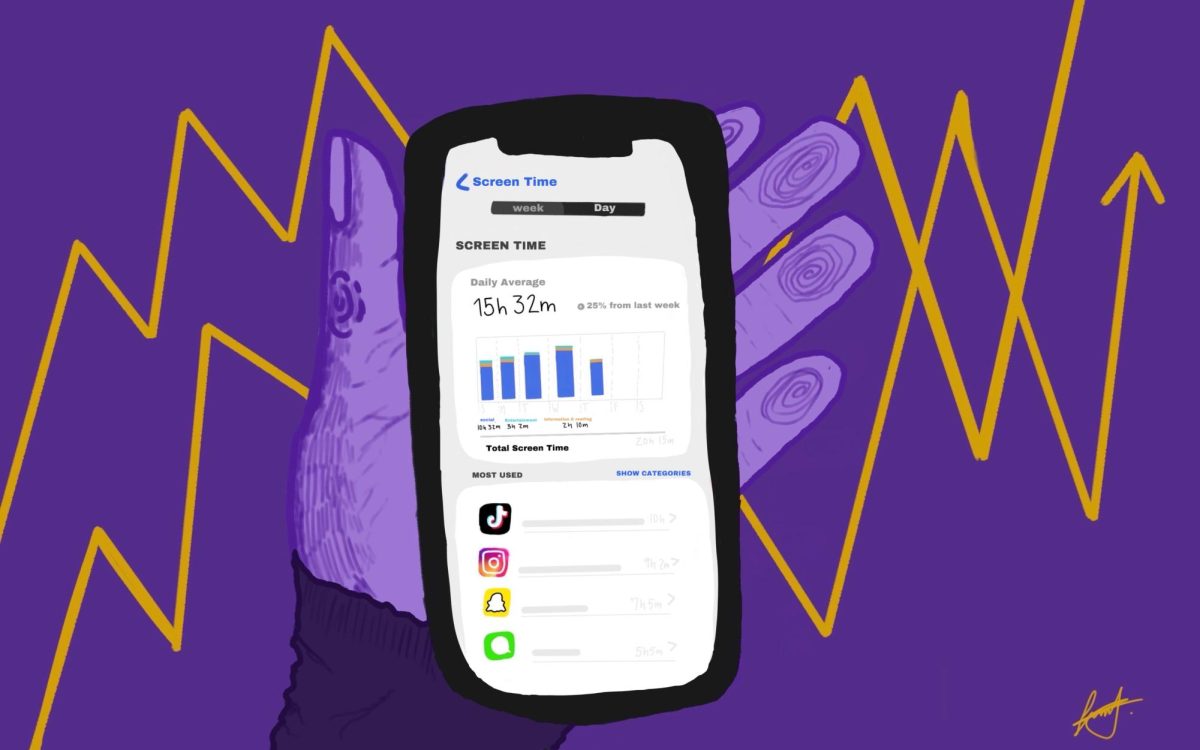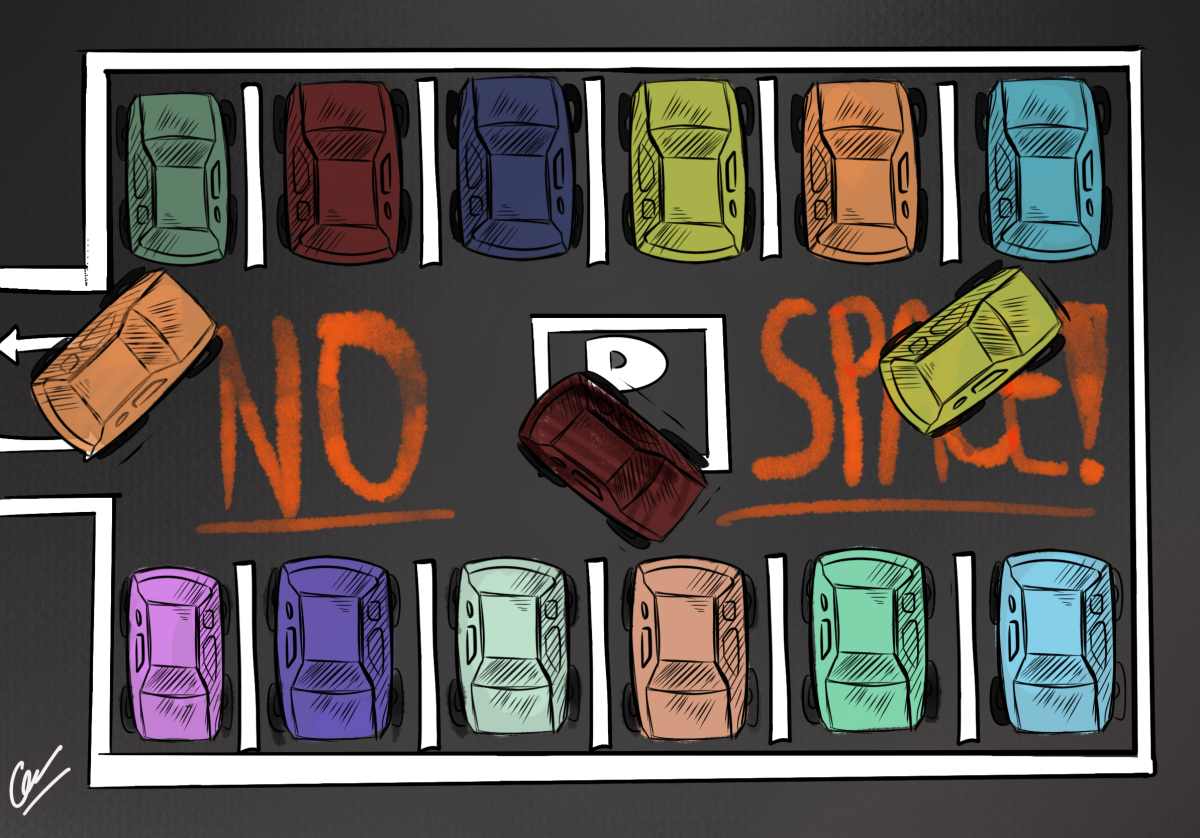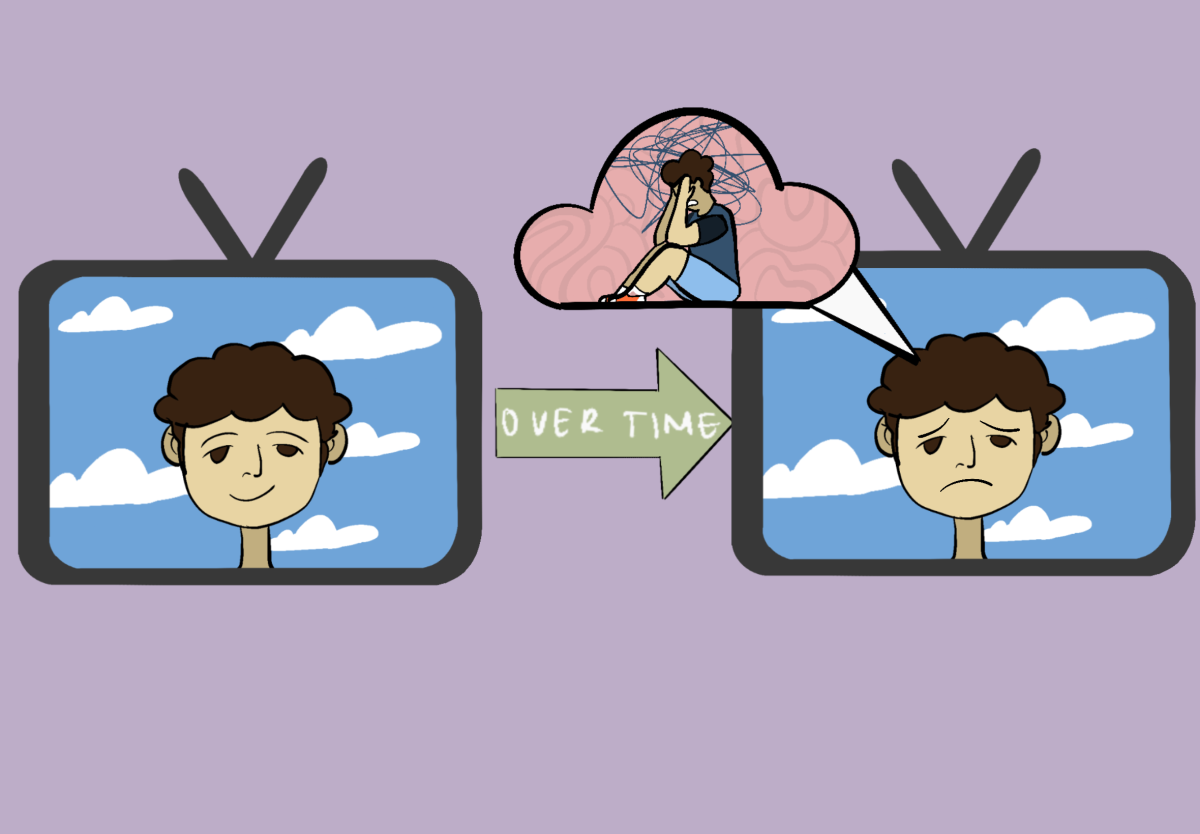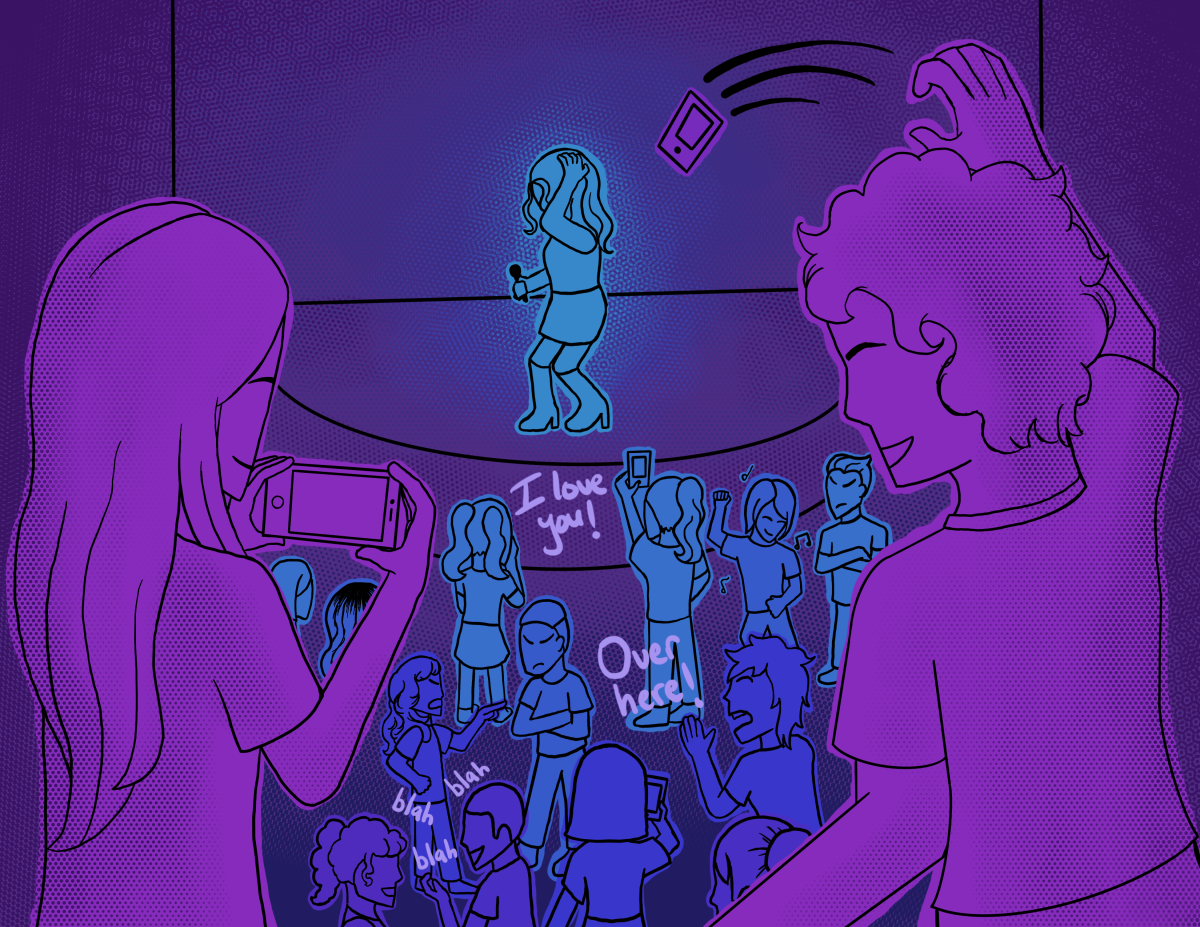“Young people these days never look up from their phones.” Every generation has grown up with some sort of new technology that older generations claim “ruins lives.” They accuse younger generations of being “addicted” to video games, television and now, artificial intelligence. It has become a pattern to blame the younger generation for taking advantage of the technology they were born into.
Phones are no exception, as Generation Z commonly faces an onslaught of comments about their phone dependency. These accusations, however, ignore the reality and causes of phone addiction.
That is not to say these accusations of addiction do not hold merit. According to Pew Research Center data, in a survey of teens’ phone usage in 2023, nearly half of teens say they use the internet “almost constantly.”
This is hardly surprising. Most of Gen Z, born between the years of 1997 and 2013 according to the U.S. Census, were given access to technology like tablets or cell phones from a young age. They do not know a world without mobile technology, meaning it can be difficult to take a step back from technology like phones. Thus, constantly shaming and blaming Gen Z for their phone addiction is based on faulty reasoning and does not truly represent the factors leading to phone addiction.
This is coupled with the fact that phones and the apps on them were designed to be addictive, according to ex-Silicon Valley employees.
“It’s as if they’re taking behavioral cocaine and just sprinkling it all over your interface and that’s the thing that keeps you, like, coming back and back and back,” former tech employee Aza Raskin said according to BBC News in 2018.
However, it is not cocaine that keeps people attached to their phones, but rather dopamine. Dopamine is a pleasure-related hormone that serves as the reward center in human brains; it motivates people to continue with beneficial behaviors. It is released when anticipating or experiencing “rewarding events,” such as eating, having sex or doing drugs. In the evolutionary sense, it would encourage people to eat in order to stay alive or have sex in order to procreate.
“But, in modern life, we live in a world of abundance rather than scarcity, and Lembke says, our brains weren’t evolved for the ‘fire house of dopamine’ of sugar, social media, TV, sex, drugs or any number of dopamine-triggering stimuli available,” National Public Radio reported in an interview with Dr. Anna Lembke, a psychiatrist and researcher.
In addicts’ brains, dopamine pathways are dysfunctional, and addicts seek out the euphoric “highs” of dopamine release increasingly often by engaging in pleasurable, but often harmful behaviors.
While dopamine dysfunction is commonly associated with drug addiction, phones and social media function in a way designed to release dopamine. For example, receiving notifications, having digital social interactions, playing games, watching entertaining content and earning likes can cause the release of dopamine.
Almost everyone these days carries a cell phone; such common exposure to dopamine via cell phones means that people constantly feel the euphoria that dopamine provides.
However, this eventually leads to an adjustment in the brain where it feels unnatural and painful to feel “normal,” or not in a dopamine-high state. Lembke calls this a “dopamine deficit state.” In the context of phones, people are in this “dopamine deficit state” when they are either not with their phone or not engaging in dopamine-triggering behaviors on their phone, such as receiving notifications or earning likes.
“We’re not able to take joy in more modest rewards,” Lembke said in the interview with NPR. “Now, our drug of choice doesn’t even get us high. It just makes us feel normal. And when we’re not using, we’re experiencing the universal symptoms of withdrawal from any addictive substance, which are anxiety, irritability, insomnia, dysphoria and craving.”
Certain features on social media apps encourage the constant “dopamine-high” state. For example, Raskin designed infinite scroll on social media apps. While it was designed for seamless usage, it creates a never-ending stream of content, meaning people often spend hours scrolling through their phone, chasing dopamine.
“There was definitely an awareness [among employees] of the fact that the product was habit-forming and addictive,” former Facebook employee Sandy Parakilas said in a 2018 interview with BBC News.
It is therefore disingenuous to blame Gen Z for their addiction to their phones, as they were handed a deliberately addictive substance at such a young age, often by their parents. Pew Research Center found in a 2020 survey of parents with a child under the age of 12 that 67% say their child interacts with a tablet computer and 60% say their child interacts with a phone.
A 2020 study published in the National Library of Medicine found a positive correlation between parental and child screen time, meaning that children of parents with high screen time are more likely to have high screen time.
“Parents who had higher screen use on weekend days were more likely to have children who demonstrated the same pattern,” the study said. “… More recent work has concluded that parental screen time is the strongest predictor of screen time for children 0-to-8-years-old. A possible explanation may be that children learn through watching their parents’ behaviors.”
This research holds more significance than shifting the blame from Generation Z to their parents. It shows a possible cause of high screen usage among Gen Z and Generation Alpha, born from 2014 to present, which can help lead to solutions.
Parents need to model appropriate mobile device usage to their children by limiting their screen time. Children will eventually pick up on their parents’ screen usage habits, and they are much less likely to fall victim to phone addiction.
The prevalent narrative that Generation Z is to blame for being addicted to their phones ignores the reality and causes of phone addiction; instead, it faults children for acting as expected when exposed to addictive substances. In order to ease the prevalence and severity of Gen Z’s phone addiction, the true solution does not lie in blame; instead, laws should be passed to restrict the purposeful design of apps to be addictive.
This story was originally published in the March 2023 Eagle Eye print edition.







































